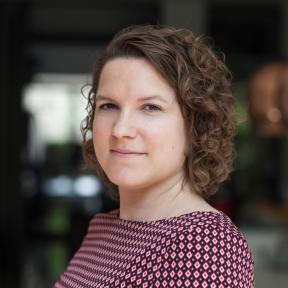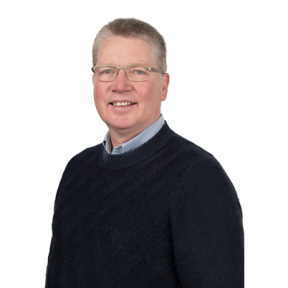Creating change for young cancer patients

Creating change for young cancer patients
September is Childhood Cancer Awareness Month, a time to highlight that children deal with cancer, just like adults do. However, one month is not enough to stress the critical need to support research, so that young cancer patients get access to more and better treatments. Children, adolescents, and young adults, should be top priority the whole year. All the time. Every day.
That’s why, at the Anticancer Fund, we devote special attention to children with cancer: we finance paediatric clinical trials (Metro PD-1 and Fluvabrex) and provide individualised information through My Cancer Navigator to parents of children with cancer. Moreover, we developed a strategic collaboration with the Belgium Foundation KickCancer, an organisation with a beautiful mission: to cure every child’s cancer. And, together, we want to create change.
Shattering figures
Each year, 35.000 kids in Europe receive the devastating news that they have cancer. 6.000 don’t survive. These are shattering figures.
Cancer is the first cause of death by disease for children aged over 1 year, although it is still relatively rare: paediatric cancer makes up less than 1% of all cancer cases.
There are about 16 main types of paediatric cancers, such as leukaemia, neuroblastoma or lymphoma. Each of those is divided into several sub-groups. In total, it adds up to about 60 different paediatric malignancies. Those cancers are generally different from those affecting adults, even when they bear the same name, it is often another subtype, and each of them requires a specific scientific attention.
High need for innovation
Access to innovative clinical trials remains an exception and only 1 in 10 children, running out of therapeutic options, is admitted in an early-phase clinical trial. Meanwhile, significant progress occurs in adult oncology research. Since 2007, 150 new anti-cancer drugs have been approved for adult malignancies. In comparison, over the same lapse of time, only 9 anti-cancer drugs were approved for paediatric malignancies.
Adolescents and young adults, also called ‘AYA’s’ (15-39 years of age), with paediatric cancer are often overlooked. There are approximately 60,000 new AYA cases in Europe a year. AYA’s have problems with access to proper care similar to those of children. As a result, the average survival rate has been stagnating and only gained 4% since the year 2000. Improvements in survival rates for AYA’s in recent years have been very modest and even consistently lower compared to children, for most cancers!
Because drugs are only tested with delay in children, the use of off-label treatments is very common in paediatric oncology. A drug is used off-label when it is used for a disease it was not originally intended for. Treatments that work in adults are often used in children without approval, but it is the only treatment option. Therefore, there is a need to identify new promising drugs for children and they have to be tested in the setting of clinical trials overseen by the European Medicines Agency and the Food and Drugs Administration.
We work on many obstacles that have to be tackled in order to ensure better access to innovative treatments for young cancer patients: need for funding, cross border participation in trials, innovative trial designs to deal with the small numbers in rare cancers, age-inclusive participation in potentially life-saving clinical trials, and so on.
Shared decision making
Another very important topic we specially pay attention to is communication and access to information. Every patient has the right to be properly informed. This applies not only to adults and the parents, but also to children, adolescents and young adults. Based on good information (options, risks, and benefits), patients and family members, can discuss the best treatment plan with the health care professionals.
Families should have adequate time to make a decision but access to clear information provided in multiple modalities (by the treating physician, other health care providers, reliable sources, peers,..) is essential. Unfortunately, insufficient time due to heavy workloads often prevents the translation of all the relevant information, hence the engagement of families in ‘Shared decision making’.
Offering parents and young patients the opportunity to get high-quality information and to prepare them for ‘Shared decision making’ is part of our mission.
KickCancer’s mission
We collaborate with the Belgian foundation KickCancer. The organisation finances clinical trials so that innovative drugs are tested in young cancer patients in a safe and ethical environment through fundamental or translational research. We support their initiatives. Our common goal? Improve our understanding of the origin and functioning of paediatric cancers, which will allow, in the long run, the development of new drugs for paediatric cancers.
KickCancer also participates in the Accelerate platform, an open forum for all the players in the field of paediatric cancers (pharmaceutical companies, academic paediatric oncologists and haematologists, parents organisations, and regulators) with the joint purpose of speeding up the access to innovative drugs.
At the Belgian level, KickCancer is advocating the amendment of certain regulations, with the support of the Belgian Society of Paediatric Haematology Oncology (BSPHO), in order to simplify the handling of the treatment of young cancer patients in Belgium, with for instance the automatic reimbursement of certain drugs or the administrative simplification of the reimbursement process of hospitalisation outside of Belgium.
Together with the Anticancer Fund, the BSPHO, patients and KickCancer, we are creating a web portal with access to reliable information on paediatric cancer. This portal is foreseen to go live very soon. We keep you posted!
Better together
The paediatric cancer community is a tight but well organised and wide network that succeeds in making progress by tackling obstacles together. Since paediatric cancer is rare, the obstacles are best addressed at European level:
- Young cancer patients deserve the best possible healthcare – no matter where they live. This is the ambition of the European Reference Network on Paediatric Cancer (ERN PaedCan). Through a network of healthcare centres that are worldwide renowned for their expertise in treating paediatric malignancies, the ERN PaedCan established a virtual paediatric oncology tumour board network to share expertise and advice.
- In Belgium the physicians who work in the recognised centres for paediatric oncology are members of the Belgian Society of Paediatric Haematology and Oncology (BSPHO). A network of national professionals who have their local tumour board where cases can be (anonymously) discussed amongst colleagues. Some are also involved in the ERN PaedCan, ensuring both a European and national network function.
- CCI Europe is the European branch of Childhood Cancer International (CCI) and is the biggest pan-European childhood cancer parents' and survivors' organisation. It represents childhood cancer parents' and survivors' groups and other childhood cancer organisations. CCI Europe reunites all the CCI European members organisations: 65 member-organisations in 32 countries.
- The European Society for Paediatric Oncology (SIOPE), addresses the main challenges faced by European paediatric oncology professionals through a multidisciplinary and pan-European perspective. SIOPE's mission is to ensure the best possible care and outcome for all children and adolescents with cancer in Europe. Through the integration of research, care and education, SIOPE and the European community of health professionals address the two goals of the next decade: to increase the cure rate and the quality of cure of children with cancer.
- The aim of the Innovative Therapies for Children with Cancer (ITCC) Consortium is to develop novel therapies for the treatment of paediatric and adolescent cancers in cooperation with regulatory bodies, pharmaceutical enterprises, parents and patients.
Both KickCancer and The Anticancer Fund interact with different stakeholders with the ambition to achieve young cancer patients’ centricity both at national as well as at European level.


